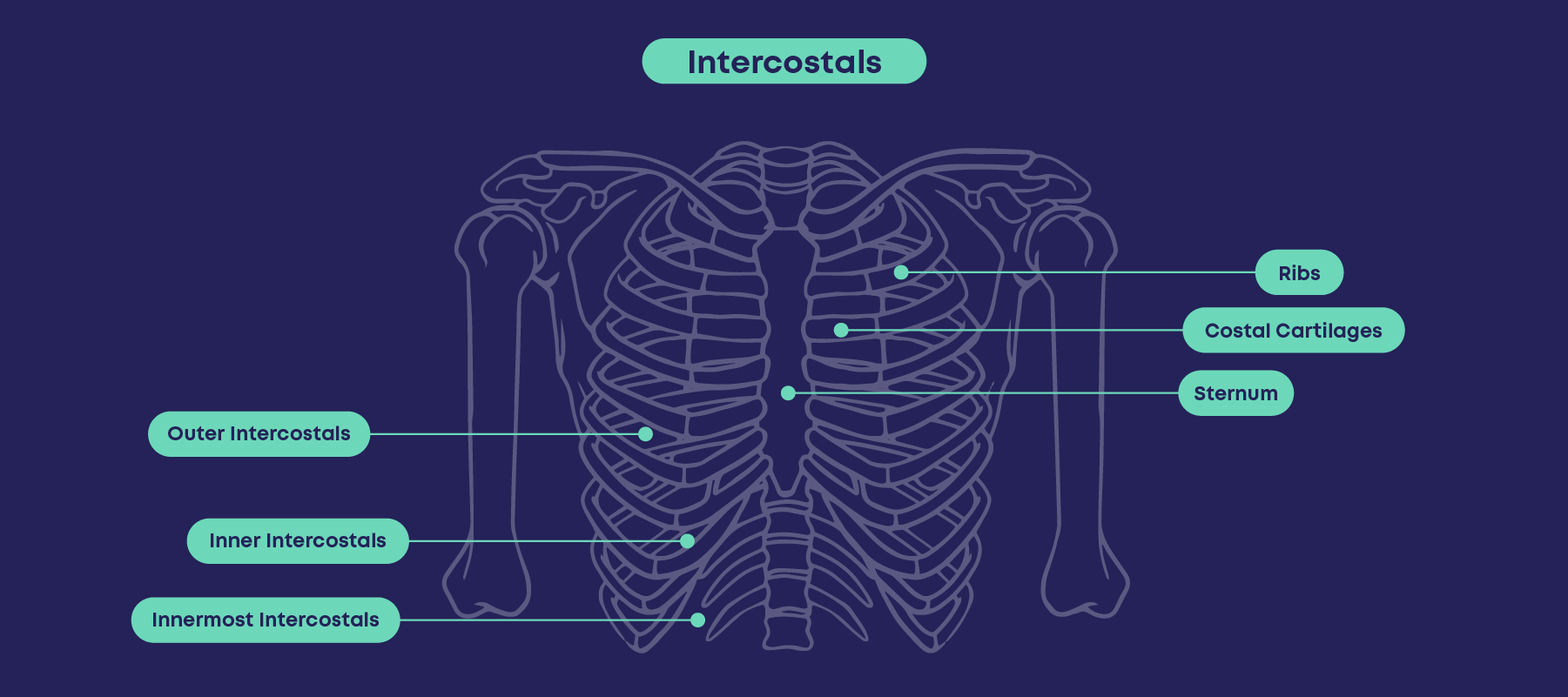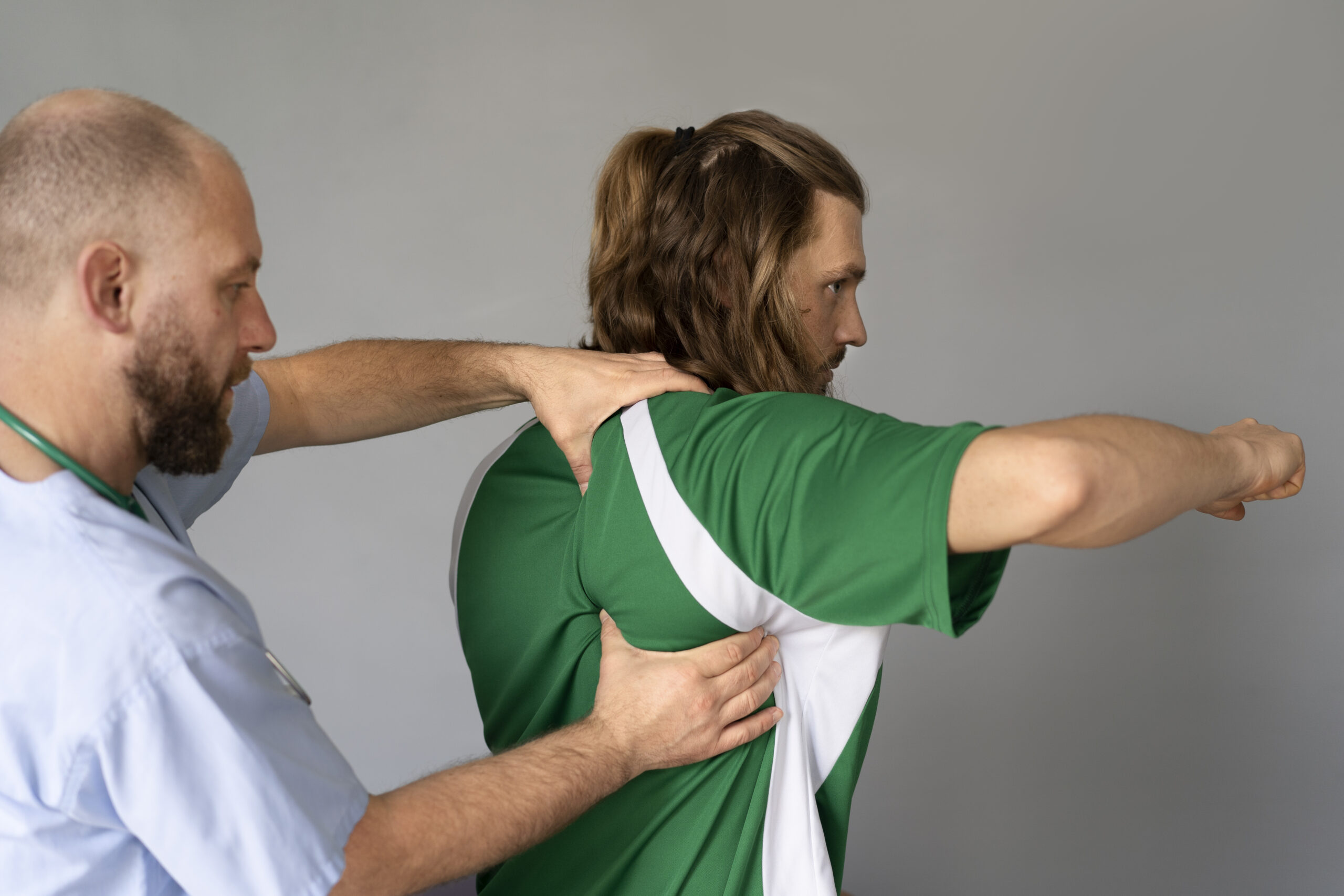Are you experiencing pain or discomfort in your ribs? Rib pain can vary from a mild ache to sharp, intense pain that makes it difficult to breathe or move comfortably. In this blog, we’ll explore the different types of rib pain, their causes, and treatment options to help you find relief and improve your quality of life.
Whether you’re dealing with a minor discomfort or a more severe condition, understanding the underlying causes and available treatments can help you make informed decisions about your health and well-being.
Let’s explore the causes behind rib pain, and how to tell one apart from other upper body pains and injuries. We also look at the causes and treatment options for these strains.
What is intercostal rib pain?
An intercostal muscle is found between the ribs, and attaches them together, helping to stabilise the upper body and assist with breathing. There are three different layers of intercostal muscle; external intercostals, internal intercostals, and innermost intercostals.
As with any muscle, if you strain, pull, stretch or tear it, you’ll likely experience pain. Straining any of the layers of intercostal muscles can result in pain as well as difficulty breathing; in fact, up to 49% of all musculoskeletal chest pain originates from intercostal muscles.

What causes rib pain?
There are many different ways you can cause pain to your ribs. Twisting motions or sudden jerks can cause strain to the muscles, either beginning gradually and getting worse from repetitive movements, or starting suddenly from a sudden motion.
Strain to intercostal muscle can be caused by:
- Lifting while twisting
- Coughing, sneezing, or other sudden movements
- Reaching up high
- Some sports, like golf, tennis, baseball or rowing
- Falling or being hit in the ribcage
The signs of rib pain may look like:
- Severe and sudden pain
- Sharp upper back pain
- Stiffness and tension
- Pain when coughing, sneezing or breathing
- Tenderness in the areas between the ribs
- Spasming of the intercostal muscles
Diagnosing rib pain
Intercostal muscle rib pain typically presents as a sharp or dull ache, localised to the area between the ribs. To diagnose intercostal muscle rib pain, a healthcare provider or physician will usually conduct a physical exam to assess the area and determine if there are any visible signs of injury or inflammation. They may also order imaging tests, like X-rays or MRI, to evaluate the underlying structures and rule out more serious conditions.
Depending on the underlying cause of the pain, treatment will likely involve rest, ice or heat therapy, pain medication, or physical therapy. In some cases, surgery may be necessary to correct the underlying issue.
It is important to consult with a healthcare professional if you are experiencing intercostal muscle rib pain or any other medical symptoms.
How to treat rib pain
If injury or pain isn’t severe, treatment may be possible at home to combat mild symptoms. If you’re trying to treat rib pain, you can try:
- Cold treatment: apply an ice or cold pack to the area, but avoid placing ice over the heart area.
- Hot treatment: a warm bath, heat wraps or pads may help strains and pain
- Rest: sometimes resting the muscles for a period of time can be enough to aid recovery
- Ibuprofen: this can reduce swelling as well as targeting painful areas
In addition to above home remedies, you may also try:
- Muscle relaxants
- Osteopathy/Physiotherapy
- Lidocaine and corticosteroids injections to reduce pain/swelling (if alternative treatments fail)
Rib pain can be a debilitating issue that can affect daily life. It’s important to seek medical help if you’re experiencing persistent or severe pain, as it may indicate an underlying condition that requires treatment.
However, there are also steps you can take to manage and prevent rib pain, such as maintaining good posture, avoiding activities that strain your ribs, and engaging in regular exercise.
Is your rib pain causing you concern? Why not get in touch with one of our experts to get some more advice; call one of clinics or get in touch with us on contact@carltoddclinics.com





